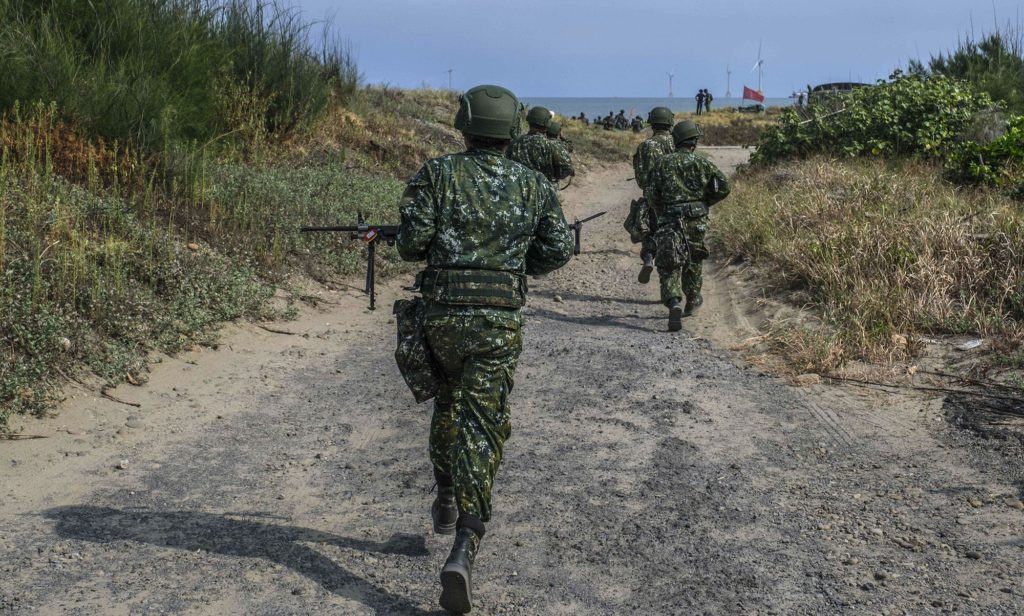(Bloomberg) — A hypothetical Chinese invasion of Taiwan “quickly founders” but exacts high costs on the island democracy and the US Navy, according to the results of an extensive set of war games released Monday by a Washington think tank.
(Bloomberg) — A hypothetical Chinese invasion of Taiwan “quickly founders” but exacts high costs on the island democracy and the US Navy, according to the results of an extensive set of war games released Monday by a Washington think tank.
Despite “massive Chinese bombardment, Taiwanese ground forces stream to the beachhead, where the invaders struggle to build up supplies and move inland” as “US submarines, bombers, and fighter aircraft, often reinforced by Japan Self-Defense Forces, rapidly cripple the Chinese amphibious fleet,” in the “most likely” scenario, the Center for Strategic and International Studies concluded.
Retired US generals and Navy officers and former Pentagon officials participated in 24 rounds of the tabletop exercise.
Participants hunched like chess players alongside analysts from CSIS, moving forces depicted as blue and red boxes and small wooden squares over maps of the Western Pacific and Taiwan.
China’s strikes on Japanese bases and US surface ships “cannot change the result: Taiwan remains autonomous” but “there is one major assumption here: Taiwan must resist and not capitulate.
If Taiwan surrenders before US forces can be brought to bear, the rest is futile” and “this defense comes at a high cost,” CSIS said.
The US and Japan “lose dozens of ships, hundreds of aircraft, and thousands of service members” and “such losses would damage the US global position for many years,” CSIS said in the report.
Japan’s Role
A key finding: The US must “deepen diplomatic and military ties with Japan.”
While Australia and South Korea are important in the broader competition with China and may play some role in the defense of Taiwan, “Japan is the linchpin.
Without the use of US bases in Japan, US fighter/attack aircraft cannot effectively participate in the war,” CSIS found.
Although Taiwan’s military is “unbroken” by a Chinese invasion “it is severely degraded and left to defend a damaged economy on an island without electricity and basic services.” China “also suffers heavily”as “its navy is in shambles, the core of its amphibious forces is broken, and tens of thousands of soldiers are prisoners of war,” the war games suggest.
Vulnerable Navy
Another major finding: The US Navy surface fleet is “extremely vulnerable,” with it “typically losing two carriers and 10 to 20 large surface combatants in game iterations,” CSIS said.
Based on the wargame results, the US should “prioritize submarines and other undersea platforms,” as those vessels “were able to enter the Chinese defensive zone and wreak havoc with the Chinese fleet, but numbers were inadequate,” said CSIS.
Hypersonics Caveat
The US should also “continue development and fielding of hypersonic weapons but recognize that they are niche weapons” and “their high cost limits inventories, so they lack the volume needed to counter the immense numbers of Chinese air and naval platforms,” CSIS said.
More stories like this are available on bloomberg.com
©2023 Bloomberg L.P.










